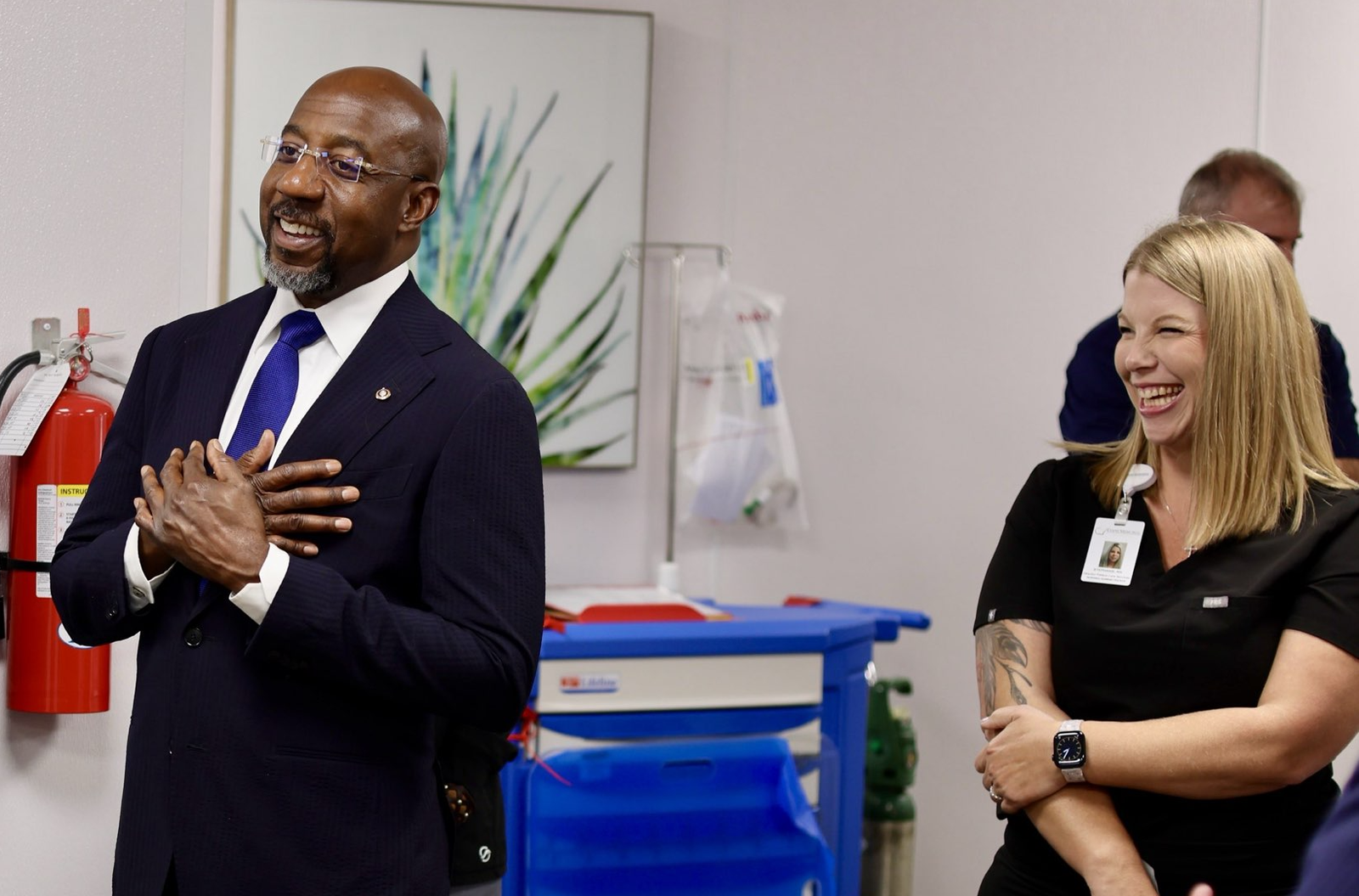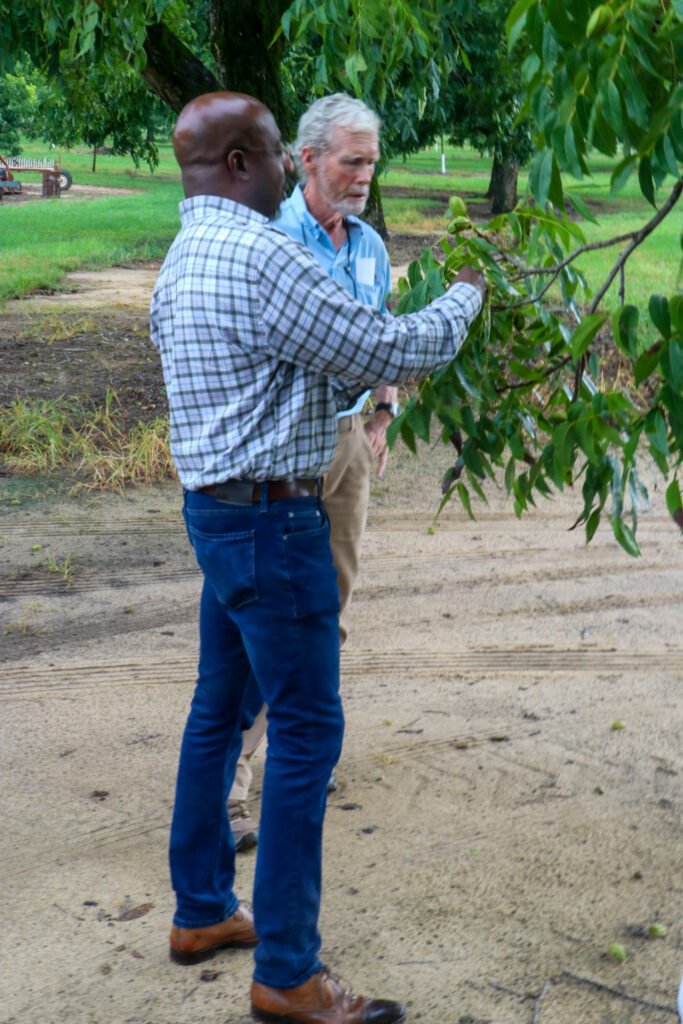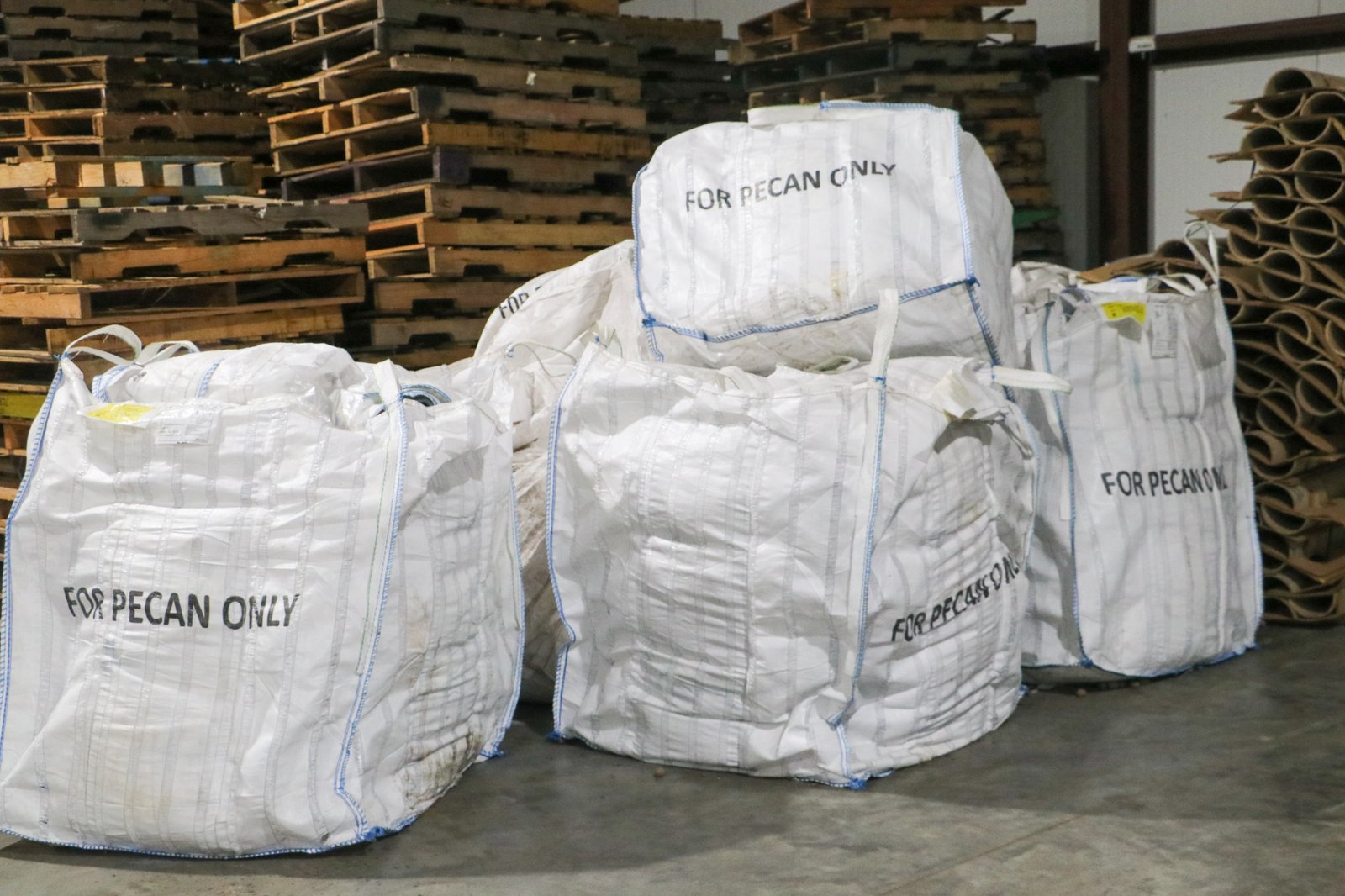
By Milton Kirby | Atlanta, GA | August 20, 2025
U.S. Senator Reverend Raphael Warnock spent the past week crisscrossing Georgia, meeting with farmers, health care providers, and small business owners to highlight the economic risks he says stem from former President Donald Trump’s tariff policies and the recently passed GOP tax bill.
Tariffs Burden Georgia Farmers
On Saturday, Warnock toured Three Bees Pecan Farm in Wrens with owner Jeb Barrow Jr., meeting local producers to discuss the financial uncertainty surrounding U.S. tariff policy. Georgia farmers, already operating on thin margins, said shifting trade rules make it difficult to plan investments and sustain jobs.
“I just know how hard farmers work in this state, and if you talk to them, they’re not interested in aid, they’re interested in trade,” Warnock said. “They want to see their products make it to India. But right now, this whole thing is being operated willy-nilly, from Donald Trump’s back pocket. One announcement, then a reversal. How do you plan a farm around that?”
Barrow praised Warnock’s approach: “He takes a genuine interest in our problems, and when we sit down at the table, he listens.”
Georgia is the nation’s top pecan producer, and nearly 28% of U.S. pecans are exported, making access to foreign markets critical. In 2022, Warnock helped lower India’s trade barriers on pecans by 70%, opening a major market for Georgia growers.

As Ranking Member of the Senate Finance Subcommittee on Trade, Warnock has pressed administration officials for relief, voting to roll back tariffs on Canada, urging expedited USDA action on pecan exports, and demanding answers on how tariffs impact small producers.
Rural Hospitals Under Pressure
In Claxton, Warnock visited Evans Memorial Hospital, which faces an annual shortfall of $3.3 million due to cuts embedded in the GOP tax bill. The hospital, already forced to close its labor and delivery unit, now risks cutting intensive care or cardio-pulmonary rehab services.
“This is a matter of life and death,” Warnock said. “We’re cutting services and endangering rural health care, all to give billionaires a tax cut. That’s bad public policy.”
According to the Georgia Hospital Association, more than 16,000 rural health care jobs could be at risk statewide. Medicaid cuts would remove up to 93,000 Georgians from coverage, while raising premiums for 1.2 million.
Warnock previously secured $1 million for Evans Memorial to replace its leaking roof, protecting equipment and patient safety. He continues to push the Health Care Affordability Act to prevent premium hikes for Georgians on the state’s insurance marketplace.
Tariffs Strain Small Businesses
On Tuesday, Warnock traveled to Atlanta’s XocolATLChocolate Factory, where owners Matt Weyandt and Elaine Read described the challenges of importing cacao beans from Central America and Africa, as well as sugar from Brazil. Tariffs on those products have spiked between 10% and 50%, forcing the business to raise prices and stockpile raw materials.

“We don’t even know what our cost of goods will be in six months,” Weyandt said. “Setting a price for customers is almost impossible.”
Warnock called the tariff policy “a job killer,” emphasizing that small businesses are the backbone of Georgia’s economy. “Congress could put forward a coherent tariff policy, but so far, my Republican colleagues have ceded all their power to the executive branch,” he said.
During his visit, the Senator joined employees in grinding cocoa beans and mixing sugar, joking, “I can’t even wrap my Christmas gifts. This is a tough job, but somebody’s got to do it.”
Broader Message
The Senator tied the week’s visits together with a broader critique: tariffs, tax cuts for the wealthy, and health care reductions are connected by what he sees as misplaced priorities. “When you center politics rather than people, you hurt farmers, you hurt families, and you hurt the very businesses that fuel Georgia’s economy,” Warnock said.
For Georgia’s farmers, small business owners, and rural health workers, the message was clear: the fight over tariffs and tax policy is not just about Washington politics — it’s about survival at home.
Please consider supporting open, independent journalism – no contribution is too small!








